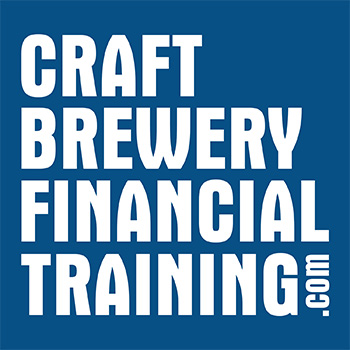 “Simplicity is the trademark of genius.” Robin S. Sharma
“Simplicity is the trademark of genius.” Robin S. Sharma
The dictionary defines a trademark as “a symbol, word, or words legally registered or established by use as representing a company or product.”
In the craft beer world, a trademark on your brewery name and major brands is defined as a major asset for your business.
In this article we chat with an Jim Keenan, an attorney from Bernstein Shur law firm. Jim explains when you need a trademark, how much it costs and how to put one in place so that you can protect this valuable asset in your brewery.
Below is an excerpt of the Q&A, to read the full interview, download the PDF at the end of this article.
Q: Let’s start with the basics: What is the purpose of a trademark?
A trademark is any word, symbol or other “device” that identifies the source of a product or service. Some of the earliest examples date back to ancient times when stone masons would make their “mark” to identify which stones they had laid.
In the beer world, your trademark identifies your beer as being your beer, not beer from some other brewery. Your brewery name, your beer names, your logos and even your packaging designs and color schemes can serve this purpose.
Picture yourself a few rows back from the taps at a crowded bar. If you’re making your decision based on just the tap handles, what do you see to help inform your choice? Perhaps a name, or a logo design or even the design or shape of the tap itself. If any of those attributes are distinct, they’re trademarks. The same is true for cans, bottles and even the tasting rooms.
When you own a trademark you have the right to keep others from adopting a “confusingly similar” mark. The purpose of trademarks is to prevent consumers from being confused and to allow the trademark owner to enjoy some market exclusivity.
The competing mark does not need to be exactly the same, merely similar enough that there is a “likelihood of confusion”. A trademark lasts for as long as the trademark is used in commerce, so it can be a perpetual right.
What is your opinion of the value of a trademark? As a numbers guy, this helps establish an ROI.
Establishing and protecting a strong “brand”, which is often comprised of multiple trademarks, is critical, not only to operating a successful brewery but also if the brewery is sold.
Based on the sales transactions we’ve handled when breweries (and other consumer-oriented businesses) sell, the trademarks and their associated goodwill represent a huge portion of the value.
What are the nuts and bolts of obtaining a trademark? Who is involved, paperwork, process, cost, timing to complete.
You establish trademark rights by simply using a mark in commerce. But, and this is a big “but”, there are two important considerations:
1.Are you the first? If another party is already using a similar mark, not only will you not own a trademark you may be violating another party’s rights. At the very least you should perform a Google search and search Untappd, BeerAdvocate and similar web site and have counsel search the U.S. Patent & Tradeamrk Office (USPTO) database. Do this well before you commit to a name (emotionally or financially). Don’t talk yourself into adopting a name that others are using just because you like it. You’ll regret it.
2.Is it registered? If you do not register your trademark with the USPTO, your rights will be much narrower (especially geographically) and more difficult to enforce.
So, it is important to: (1) conduct a trademark “clearance search” to ensure you’re the first to use the trademark; and (2) register that trademark with the USPTO. If we’re asked to run a USPTO search and prepare and file a trademark application, the cost is typically $1,225. Given all of your other costs, this is pretty short money to help protect what will likely be your most valuable asset. The turn time on the work from our end is about a week, but the entire registration process with the USPTO takes about a year.
How do you go about determining what you should or shouldn’t get trademarked? What are the key questions to ask yourself? The name game seems murky, do you have tips to help make it more clear?
Do not use a name that is similar to what others are using. Note that I didn’t say identical. Identical is definitely a non-starter, but you don’t want something even similar.
[XYZ] Brewing Company and [XYZ] Brewery are the same.
[XYZ] Pale Ale and [XYZ] Stout are the same.
Make your [XYZ] totally unique. If you have an idea for a brand and you find something that you even think might be considered similar, move on to something else. This is especially true for your brewery name, which is likely to be the core trademark in your brand.
What are the common mistakes you see craft breweries make with regard to trademarks?
Launching the brand and business without running a clearance search and without filing with the USPTO.
Please do not do this.
These steps should be taken WAY before you look for locations, equipment, loans, investment, etc. In fact, this should come before you even form the business entity or at least contemporaneously with that formation.
If you get a trademark are you fully protected, or might you still face a legal challenge? How do you defend your mark?
First, even if registered, you must continue using your mark to maintain trademark rights.
If you register your trademark with the USPTO, for the first five years after the registration, your registration can be attacked by a party that can demonstrate that it owned and used a similar mark before you. Once the five years passes, your registration cannot be attacked on those grounds.
A party that has prior use may be able to block you from their market, but it cannot otherwise attack your registration or stop your use.
Now, think about this in reverse. This means that even if you use a trademark first, if you do not register it, another party can lock you into the market you serve at the time it registers the mark. This could limit your use to within a few miles of your brewery depending on the scenario and the extent of your distribution.
Also, as a trademark owner, you are required to adequately monitor and enforce your trademark. If you don’t, you will weaken, and perhaps lose, your rights. If you allow others to use similar names, consumers will no longer see your name as unique and will no longer identify it with a singular source. Once that happens, your name no longer functions as a trademark and you’ll lose your rights.
Once you get a mark, how do you monitor or screen for possible infringements? Are there services are out there to make sure your mark isn’t being used by others?
You should set up Google alerts for your brand names so that you see any online activity associated with those names. You should also enroll in a watch service that monitors the USPTO for new filings similar to your trademarks. We offer a watch service that starts at $350.
Do you have some trademark basics, printed materials, that I could share with craft breweries?
Yes indeed. Download the PDF guide Trademark Services & Rates.
Wrap up + Action Items
Trademarks are really important for your business, but trademark law can be confusing.
Read over the full Q&A with attorney Jim Keenan. Understand when you need a trademark, when you don’t, and how to put one in place.
More questions? Give Bernstein & Shur a call, they can help you protect your brewery and brand names. These are perhaps the most valuable assets in your brewery.





